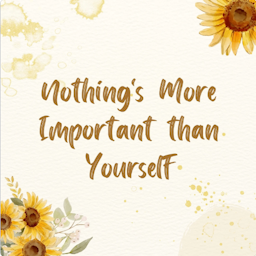Hong Kong: Technology Gives Ethnic Minority Women A Voice
Dec 24, 2021
Story
Three years ago, I just joined Translate For Her [THEM], as a voluntary translator. Though Yuen Long is a multinational and multicultural district, where is always full of ethnic minorities, interactions between local Chinese Hongkongers and those non-Chinese Hongkongers are always very weak. However, Translate For Her [THEM] offers a digital platform, which enriches my community participation. Last year, Translate For Her [THEM] was featured by Make A Difference Institute, for its social innovation. Therefore, I would like to introduce you more about Translate For Her [THEM], where [THEM] stands for “Transcultural community”, “Her: Gender equality”, “Her: Gender equality” and “Mutual support & Crowd sourcing”.
Ever since being an English teacher and a friend of non-ethnic Chinese women seven years ago, Gigi Lo has strived to make their voice be heard. The South Asian community is relatively big minority group, but they are always invisible from public sight, despite some having their roots in Hong Kong for generations. “Those non-Chinese Hongkongers include Pakistanis, Nepalese, Indonesians and Indians. Some of them only speak their mother tongue and cannot communicate in Chinese nor in English,” Gigi explained. “The problem is especially critical for the housewives. Many of them cannot read notices in the community or from their children’s schools; sometimes they can hardly rent an apartment or seek help from their neighbors. The cases may be trivial, but the consequences can be terrible.”
“They used to seek help from social workers in the past, but the limited manpower and working hours hindered timely assistance.” Gigi then created a WhatsApp group to connect non-ethnic Chinese female users with seven volunteer translators who provide instant translation service. That was how Translate For Her [THEM] started. “This idea of crowdsourcing fills the service gap and facilitates social inclusion at the same time,” says Gigi.
After running the organization for six years, Translate For Her [THEM] now has about 260 ethnic minority users in their network, including people of Pakistani, Nepalese, Indian, Sri Lankan, Indonesian and other ethnicities. Thanks to the internet (convenience brought by technology), they have voluntary translators from different parts of the world, including the US, Canada and Malaysia. Apart from professional English translation, some of them also provide translation of other languages like Indonesian. The ratio of volunteers (to ethnic minority women) is about 1:1.2. They have 12 translation groups, including two for information dissemination. They have a Telegram channel, and they also work with other organizations.
Lastly, I discover that Gigi Lo is really a changemaker in Hong Kong, as discrimination against ethnic minorities was so serious in Hong Kong. Indeed, the establishment of Translate For Her [THEM] makes a connection between local Chinese Hongkongers and ethnic minorities. By observation, I also discover that EM women are more willing to express themselves through technology. As a Chinese teacher for non-Chinese speakers in Hong Kong, I think Translate For Her [THEM] makes a good start for improving Chinese level for EM people by using technology.
Translate For Her Website:http://them.mystrikingly.com/
https://www.youtube.com/watch?v=rpLYOve6vuA




